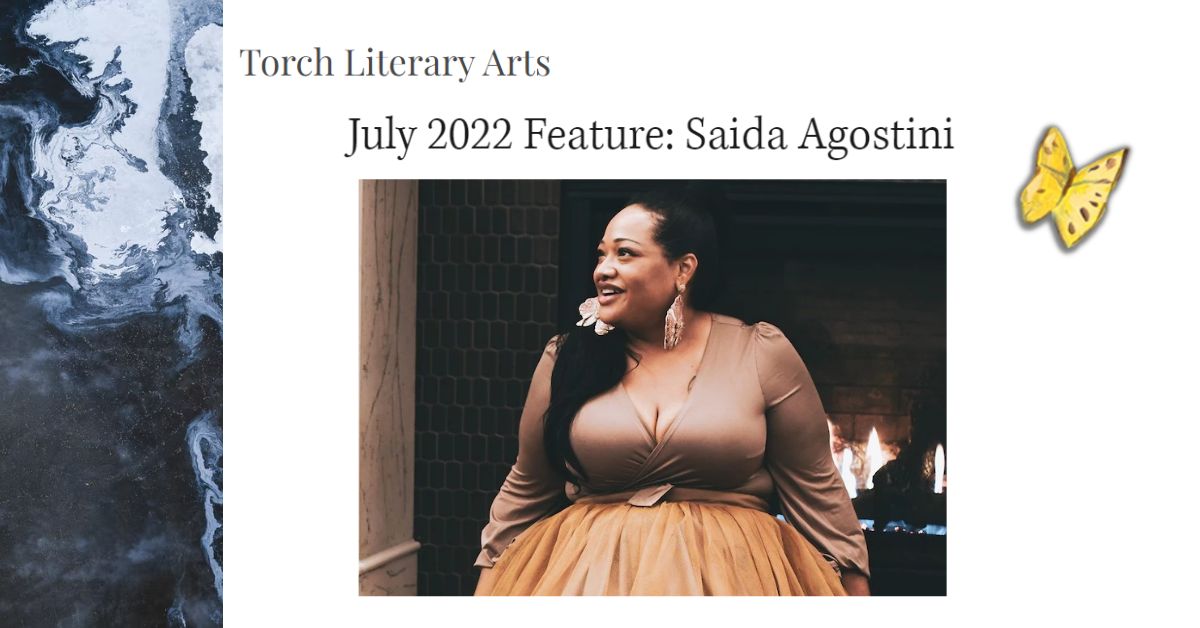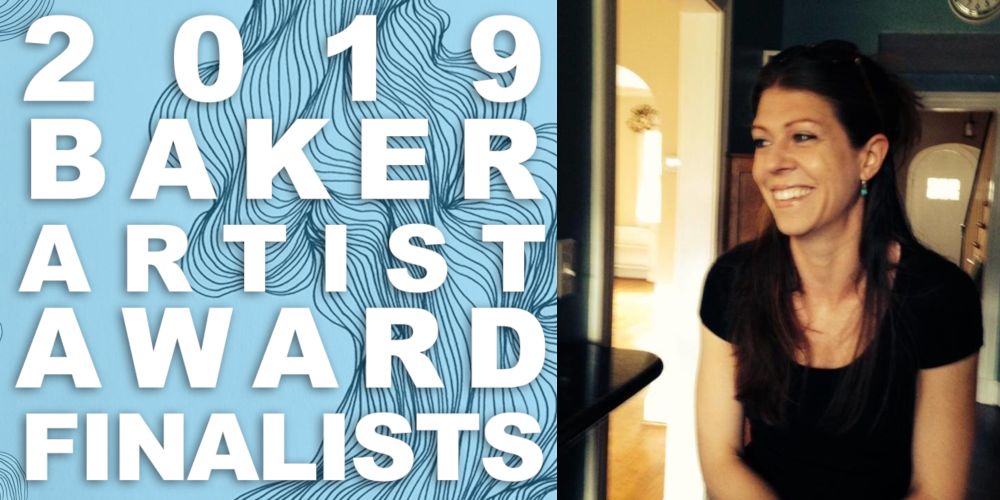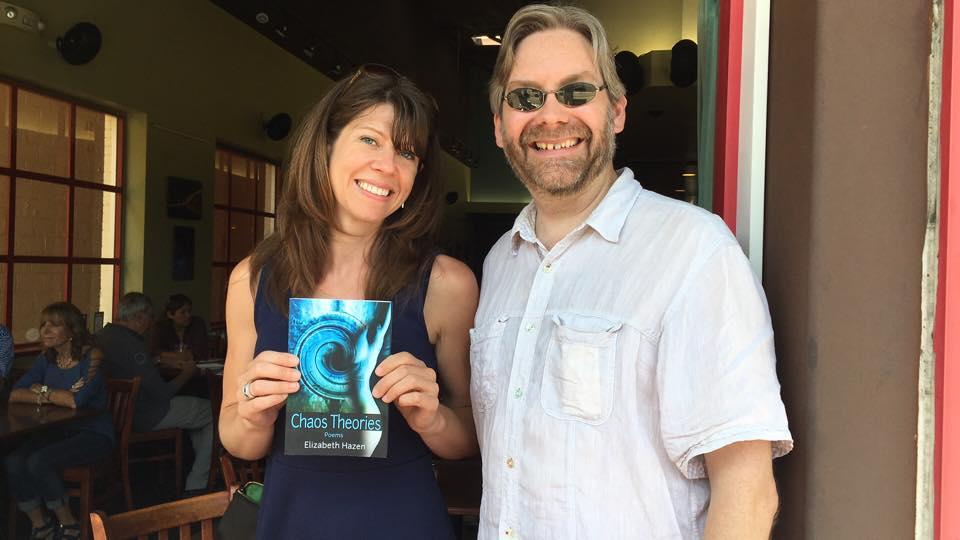Saida Agostini is Torch literary Arts Featured Artist of July

Torch Literary Arts, a non-profit literary organization with the goal of raising the creative voices of black women writers, has selected Saida Agostini as their featured artist of July. Included in the feature is a sampling of her work and a substantive interview with Saida. Read the entire feature here and find an excerpt of the interview below.
Saida Agostini is a queer Afro-Guyanese poet whose work explores the ways Black folks harness mythology to enter the fantastic. Her first full-length poetry collection, let the dead in, is an exploration of the mythologies that seek to subjugate Black bodies, and the counter-stories that reject such subjugation. You can pick up a copy of let the dead in wherever you buy books, or check out our dedicated shop here
Excerpt from Torch's interview with Saida Agostini
Your writing is rich with images of desire and love but also leans into the realities of pain and injustice. How do these subjects influence your work?
Our bodies were built for pleasure. What a miracle of atoms. I think one of the prevailing tragedies of misogynoir and capitalism is that we as Black folks are constantly pushed to be divorced from our physicality and pleasure. Audre Lorde defines the erotic as a measure between the beginnings of our sense of self and the chaos of our strongest feelings. We have a right to our etiology, our chaos, our power. I want us to know the full scope of our power, and the history of it, what it took, what it continues to take to survive this beast called America. My work seeks to recount these histories, and offer a full-throated vision of Black freedom where our pleasure is never denied.
Fiddlin’ Around in Ireland
Nothing buoys the spirits like a walk along Grafton Street. Gray day or sunny, it’s bright with noise and laughter. Loud “hellos,” babies crying, neighborly gossip, rich brogues and lilting Irish airs float up onto the breeze. Our chosen course allowed for a stroll through St. Stephen’s Green. Sunlight dappled the leafy brakes. Inspired by the moment, Lawrence liberated his fiddle and sawed out a hornpipe. He was joined in his performance by a pair of amorous ducks.
On Grafton street we were immediately surrounded by music. A couple of 9 and 10-year-old boys, Donald Reagon and Paul O’Neill, were delighting passersby with smooth moves on the fiddle and concertina. College students with shaved heads played sitars. Old men played jazz. A guitarist somewhere was plucking out George Harrison tunes and singing, “Here comes the sun, little darlin’ here comes the sun.”
On that musical street there was only one poet—a threadbare character who, for a pound or a punt (Irish pound) or nothing at all, would recite a poem by a poet of one’s choosing. I selected Yeats and was honored with “The Fiddler of Dooney”:
“When I play on my fiddle in Dooney, Folk dance like a wave of the sea . . .”
An Interview with Elizabeth Hazen, Baltimore Poet and Baker Award Finalist
Baltimore poet, Elizabeth Hazen’s first collection of poems is entitled Chaos Theories. Last week the young poet was announced as a finalists for the prestigious Baker Artist Award in literature. We sat down to talk with her about her experience in Baltimore as an artist and what programs like The Baker Awards mean to artists.
Elizabeth Hazen Announced as a Finalist for the 2019 Baker Award
This year, ASP’s own Elizabeth Hazen, author of the poetry collection Chaos Theories, is a finalist for the $10,000 literary honor. Hazen is a Baltimore resident and ardent supporter of the city’s burgeoning arts scene (named by Thrillist and Departures magazines as one of the best arts cities in America). She received her MFA from Johns Hopkins University and currently teaches English at the Calvert School in Baltimore.

